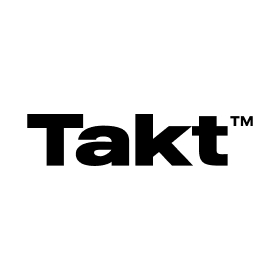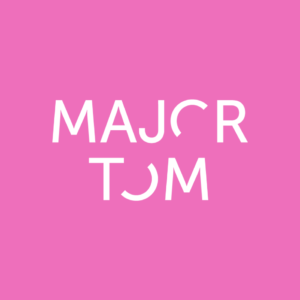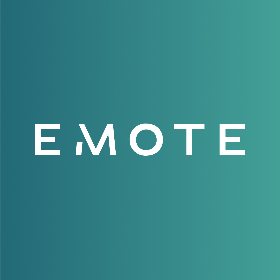
Effective Strategies for Maintaining Agency Profitability in Tough Markets
To maintain profitability in a dynamic and competitive market, agencies must continually adapt. By analyzing client behavior, crafting tailored strategies, strengthening client relationships, and optimizing operations, you can elevate your agency’s efficiency and profitability to new heights.
BugHerd, a leading global provider of website feedback and bug tracking software, hosted a webinar with Rob Sayles, a leading UK Agency Advisor and Coach with over 20 years of experience working with creative and marketing agencies. Rob helps agencies improve performance, client value, and operational efficiency.
Their conversation centered around strategies to improve client retention, enhance upselling tactics, and cut operational costs while increasing productivity. By adopting these methods, agencies can ensure long-term profitability and remain competitive in today’s market.
Watch the webinar on demand or read the key takeaways down below.
1. Client retention and building relationships
Retaining clients is considerably cheaper than chasing new ones, with new client acquisition costing significantly more. During tough economic periods, when pipelines dry up and competition intensifies, retaining clients becomes even more vital. Focusing on these relationships ensures consistent revenue, helping agencies navigate downturns successfully.
Agencies must engage with clients regularly, not just during project updates or invoicing. Consistent communication—through check-ins, feedback surveys, and informal chats—helps build deeper connections, uncover future opportunities, and tailor services to client needs. This personalized approach fosters long-term loyalty and trust.
2. The opportunity to upsell
Upselling, when done right, flows naturally from strong client relationships. Instead of simply pushing more products or services, it’s about identifying areas where clients have additional needs and providing solutions that truly benefit them. This requires a deep understanding of their business, challenges, and future goals.
For successful upselling, building strong relationships through regular communication is essential. This fosters trust and a deeper understanding of their evolving needs. Tracking client interactions and preferences through CRM tools allows agencies to proactively offer new services that align with their objectives.
3. Cutting costs and increasing efficiency
Maximizing efficiency is critical for agencies! Streamlining operations and boosting productivity can make a huge difference, but so many agencies simply don’t know how to get started. Some areas to consider include:
Managing resources effectively
Effective resource management is essential. Tools that provide visibility into workloads and scheduling help avoid bottlenecks, missed deadlines, and staff burnout. Proactive resource planning ensures the right people are available for each task and maximizes agency productivity.
Clarifying roles and responsibilities
Unclear roles can lead to missed tasks and inefficiencies. Agencies need to define clear roles for each team member and align their skills with project demands. This ensures high-quality work and less need for senior intervention. When staff know exactly what they are meant to be doing, they proceed with confidence and get the job done quicker.
Centralizing data and tools
A major hurdle agencies face is scattered information across various tools. This leads to inefficiencies and higher costs. Bringing all project-related data into a unified system ensures better collaboration, fewer errors, and less duplication. Regularly evaluating tool usage for redundancies is key to reducing costs and enhancing workflow efficiency.
Focusing on internal growth
Though client projects are a priority, dedicating time to internal improvements is vital. Investing in training, process optimization, and team-building initiatives builds a strong foundation for future success. Agencies that invest in internal projects create more efficient operations and long-term growth potential.
4. Fostering a culture of open communication
Many agency challenges arise from poor communication. Encouraging a culture where all team members feel empowered to share ideas and raise concerns is critical. Weekly team huddles are an effective tool for addressing immediate project issues while fostering transparency. These meetings can align team members with agency-wide goals and ensure resources are being efficiently allocated.
A successful communication culture allows ideas to come from all levels of the organization. Junior staff often offer unique insights due to their direct involvement in project execution. By valuing all contributions, agencies can tap into a broader range of innovative ideas and solutions.
5. Leadership’s role in agency success
Leadership is instrumental in driving the changes necessary for agency success. Leaders must not only set the vision but also actively manage change by reallocating resources, optimizing tools, and making difficult decisions when needed. Additionally, leaders should model the behavior they want to see in their teams, emphasizing transparency, clear communication, and a commitment to continuous improvement.
Balancing the immediate demands of client work with the agency’s long-term growth is a common leadership challenge. However, investing in process improvements and client relationships ensures a more stable, sustainable business. Leaders also need to monitor team workload and ensure resources are managed effectively to prevent burnout and maintain motivation.
Conclusion: Getting ahead in a difficult market requires a multi-levered approach
There is no single magic bullet that ensures agency prosperity. To thrive in a challenging market, agencies must focus on a number of factors – client retention, strengthening internal processes, and cultivating a transparent communication culture. Leadership plays a pivotal role in implementing these strategies, ensuring profitability and stability.
Agencies that are proactive in refining their operations and building strong client relationships will be better positioned to weather market challenges and secure future growth.





















